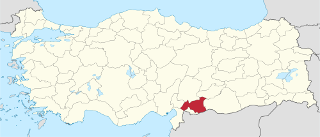After years of denying that they were allowing any movement of ISIS forces through their country, Turkey is finally shifting their policy, constructing a new concrete wall south of Gaziantep to try to seal off one of the most important crossings for ISIS between Turkey and their territory in northern Syria.
 The shift from tacit support for the influx of Islamist fighters to blanket denials to actually trying to get a handle on the crossing was a long, winding road, with a growing number of ISIS attacks in Turkey eventually forcing the Erdogan government’s hand.
The shift from tacit support for the influx of Islamist fighters to blanket denials to actually trying to get a handle on the crossing was a long, winding road, with a growing number of ISIS attacks in Turkey eventually forcing the Erdogan government’s hand.
With reports that the latest attack, against the Istanbul Airport, included attackers who were in the ISIS capital of Raqqa, and authorities seeking suspects along the border area, there is no longer any claiming that the cross-border traffic isn’t having a negative impact on Turkey.
Whether the wall were work is another matter. Though estimates put between 25% and 40% of ISIS traffic in the area along the Gaziantep border, the whole Syria-Turkey border is 566 miles, and ISIS controls no small fraction of it. The wall may ultimately just shift traffic to other crossings, or convince ISIS that it needs to take more border territory to control yet more potential entry-points.


